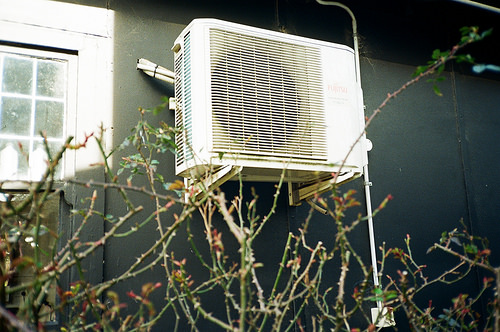Among the top concerns of homeowners is if their homes are energy-efficient and environmentally friendly. The type of heat pump that your home uses can significantly contribute to these factors, so be sure to do your research to understand how they work.
Geothermal Heat Pump

Image via Flickr by Matthew Paul Argall
If your main concern is to be as energy-efficient as possible, then a geothermal heat pump is the best option for you. This heat pump works by heating and cooling air that passes through a series of loops or coils that are buried underground. It doesn’t matter if you live in a cold or hot climate because the underground temperature stays consistent.
Installing a geothermal heat pump carries an upfront cost, which is why it’s important to talk to a service provider about the installation process. Since the coils have to be buried, the type of terrain that your house sits on and the style of coil that is used play a large role in cost. You also have to consider how the installation process will disrupt the natural landscape, and whether or not all of these factors mitigate the benefits of this type of unit.
Split-Ductless Pump
If you’re adding on to your home or living in a small space, a split-ductless pump could be an excellent option. This unit is also energy-efficient, requires very little work to install, and is less prone to disrepair or leaks. It needs a single hole through the roof and works almost soundlessly.
There are some major differences between the styles of heat pumps, especially between a split-ductless pump and a traditional HVAC unit. Installation costs could be three times more if you were to replace your HVAC with a split-ductless pump. You also have to clean the split-ductless pump monthly or risk having to spend hundreds of dollars on professional services. The efficiency of the pump also requires specific placement within the room to work properly. If it is placed improperly, you could lose out on all of the energy-saving benefits.
Air-Sourced Pump
Despite being an older type of unit, air-sourced pumps continue to be a popular choice while still being energy-efficient. They cost less to install than newer options and efficiently heat and cool entire homes using only one unit. It uses a process of refrigeration in which a coil full of liquid creates a heat exchange during the winter and then reverses that process during the summer.
Air-sourced pumps are prone to leaks, and the refrigeration unit should be regularly serviced to ensure it continues to work efficiently. It also primarily runs off of electricity, so check whether or not you live off of a gas main, as a gas-powered pump could be more efficient for your home. If this unit seems like the right one for you, be sure that your home is properly insulated so that you can reap the benefits of the energy savings.
Not all heat pumps are created equal, and every home has different needs. Be sure to thoroughly research the different types of heat pumps before you buy one because the installation and repair costs will vary depending on the terrain, size of home, and climate.